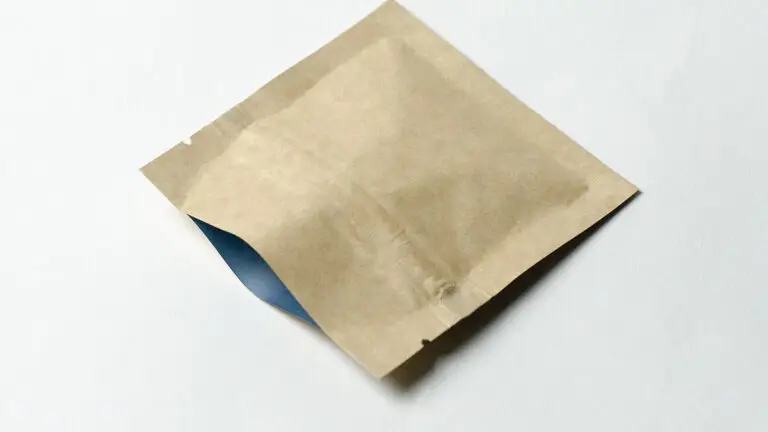In an era where environmental consciousness is becoming increasingly prevalent, the quest for sustainable alternatives has never been more crucial. Among the many aspects of daily life being reconsidered for their environmental impact, the ubiquitous ziplock bag has found itself under scrutiny. Enter Compostable Ziplock Bags – a promising innovation that seeks to alleviate the burden of plastic pollution while still offering the convenience and functionality we’ve come to expect.
Understanding the Problem
Plastic pollution is a pressing global issue, with single-use plastics being a significant contributor. Ziplock bags, while convenient for storage and transportation, are predominantly made from non-biodegradable plastics, adding to the mounting waste crisis. Traditional plastics take hundreds of years to decompose, if at all, often ending up in landfills, oceans, and natural habitats, where they wreak havoc on ecosystems and wildlife.
The Emergence of Compostable Solutions
In response to this environmental dilemma, Compostable Ziplock Bags have emerged as a promising alternative. These bags are typically made from plant-based materials such as cornstarch, sugarcane, or PLA (polylactic acid), which are biodegradable and compostable under the right conditions. Unlike their plastic counterparts, Compostable Ziplock Bags break down into organic matter, water, and carbon dioxide within a matter of months when exposed to the appropriate composting environment.
Benefits of Compostable Ziplock Bags
Environmental Sustainability: The primary advantage of Compostable Ziplock Bags lies in their minimal environmental impact. By utilizing renewable resources and biodegradable materials, these bags significantly reduce the carbon footprint associated with traditional plastics.
Reduced Pollution: Compostable Ziplock Bags offer a solution to the persistent problem of plastic pollution. Since they break down into natural components, they do not linger in the environment, posing a threat to ecosystems and wildlife.
Versatility: Compostable Ziplock Bags are as versatile as their plastic counterparts, offering airtight and waterproof storage for a wide range of items, from food and snacks to personal care products and household items.
Consumer Appeal: With growing awareness and concern for the environment, there is a rising demand for eco-friendly alternatives among consumers. Compostable Ziplock Bags cater to this demand, appealing to environmentally conscious individuals seeking to reduce their ecological footprint.
Challenges and Considerations
While Compostable Ziplock Bags offer promising benefits, several challenges and considerations must be addressed:
Composting Infrastructure: Successful composting of these bags relies on the availability of appropriate composting infrastructure. Without access to industrial composting facilities or home composting setups, the bags may not decompose effectively, defeating their purpose.
Cost Considerations: Compostable Ziplock Bags may be more expensive to produce than their traditional counterparts due to the use of alternative materials and production processes. However, as demand increases and technology advances, economies of scale may help mitigate these costs over time.
Durability and Performance: Some consumers may express concerns about the durability and performance of Compostable Ziplock Bags compared to conventional plastics. Manufacturers must ensure that these bags meet quality standards and provide adequate protection for their intended use.
Education and Awareness: Effective adoption of Compostable Ziplock Bags requires education and awareness among consumers regarding their benefits, proper disposal methods, and composting requirements. Public outreach and communication campaigns play a crucial role in fostering understanding and acceptance.
The Way Forward
The transition to Compostable Ziplock Bags represents a step towards a more sustainable future, but it is not without its challenges. Collaboration among stakeholders – including manufacturers, retailers, policymakers, and consumers – is essential to address these challenges and drive widespread adoption.
As consumers, we have the power to influence change through our purchasing decisions. By choosing Compostable Ziplock Bags over traditional plastics, we contribute to the preservation of our planet for future generations. Together, we can embrace sustainability and make a meaningful difference in the fight against plastic pollution. If you want to know more information about degradable dog poop bags visit TopUSAPackaging
In conclusion,
Compostable Ziplock Bags present a promising solution to the environmental challenges posed by traditional single-use plastic bags. With their ability to break down into natural components under composting conditions, these bags offer a sustainable alternative that reduces the burden on landfills and minimizes pollution. However, while Compostable Ziplock Bags offer significant benefits, their widespread adoption requires collaboration among consumers, manufacturers, policymakers, and waste management facilities. Education campaigns can help raise awareness about the benefits of compostable alternatives and encourage individuals to make environmentally conscious choices. Additionally, continued research and development efforts are essential to improve the durability, cost-effectiveness, and availability of Compostable Ziplock Bags. By incorporating compostable materials into everyday products like ziplock bags, we can contribute to a healthier planet and create a more sustainable future for generations to come.
